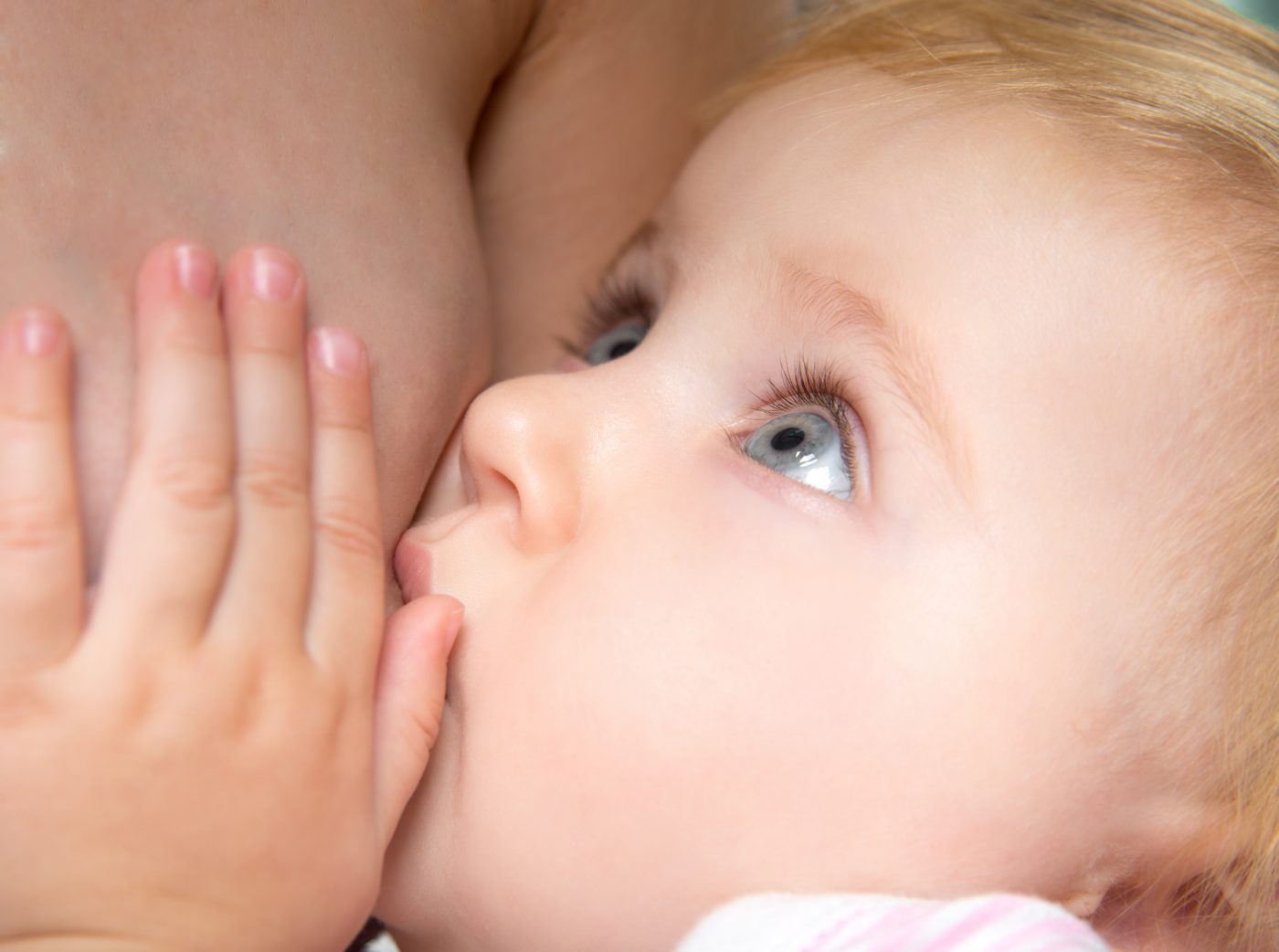
After a straightforward birth, most babies are ready to feed within the first hour. Skin to skin contact at this time after birth is the perfect way to welcome your baby, helps them feel safe and secure and will stimulate them to search for your breast and begin to feed. This early first feed is really important as it provides a concentrated boost of protective antibodies and also begins to set up your milk supply for the future.
When considering how you might feed your baby during pregnancy your midwife will advise that you don’t have to make a final decision until you hold your baby after birth as many mothers who were convinced that they would bottle feed find they may change their mind when their baby is next to them.
As your baby suckles, the stimulation sends signals from the breast to your brain which in turn releases a hormone that tells the breast tissue to make more milk. This hormone is called prolactin.
Breastfeeding works on supply and demand. Your body calibrates how long your baby feeds for, and how much milk is removed, then produces the appropriate amount of milk for the next feed. This feedback system has evolved to make sure that mothers do not produce too much or too little milk. As your newborn baby grows your milk supply should increase to match his nutritional needs.
Even thinking about your baby will trigger oxytocin production, and this can stimulate your letdown reflex. This causes the muscles around the milk storage areas in your breast to squeeze and push milk down towards your baby. Milk ducts widen too. The letdown reflex feels different for every mum; some feel tingling or cramping while others don’t feel anything at all but the milk still comes down.
As with all mammals, our breast tissue contains glands that secrete milk. Human breast milk contains hundreds of ingredients including important fats (for brain development), proteins and sugars. The milk also contains hormones, growth factors to promote optimal growth, enzymes to aid digestion and antibodies to develop the baby’s immune system. Breastmilk also contains a range of factors which help the baby absorb and utilize nutrients such as iron, fats and protein. The milk is made and collected in your breasts’ storage areas (the alveoli) and when the baby starts to feed, the milk is pushed down the ducts towards the nipple where the milk can be transferred to your baby’s mouth. Your baby also helps milk to be transferred by the action of their tongue and by creating a vacuum that draws milk from the breast. The milk in a feed isn’t just what your breasts have been storing. Your breasts also make milk as your baby is feeding! During the first feeds, you’ll produce a very rich milk called colostrum, which though small in volume contains everything a newborn baby needs. After about two days, mature milk starts to comes in, which contains more fat and more water and is produced in greater volume.
If you’re worried that you’re not producing enough milk for your baby, speak to your midwife, health visitor or a breastfeeding counsellor. You can also call the National Breastfeeding Helpline.
Breastfeeding a baby requires around 500 calories a day. Lots of mums also report feeling incredibly thirsty when they begin to breastfeed so always have a glass of water to hand and keep your fluids up during the day, especially in hot weather.
Lots of mums decide to breastfeed their twins or multiples. Indeed, the La Leche League has reported that it saves mothers of twins both time and money to breastfeed them (as the time making up and sterilising bottles is even higher with twins and multiples). Because of the supply and demand system, it’s perfectly possible to produce enough milk for your babies. If you find out you’re having twins or multiples, it’s worth joining a local support group for parents in the same boat!
The action of breastfeeding helps your uterus to contract back to the size it was before your pregnancy. You may be able to feel this happening and these contractions are called ‘afterpains’. You may notice them more if it’s not your first baby and they can feel like bad period pains. You can talk to your midwife if you are worried about your afterpains.